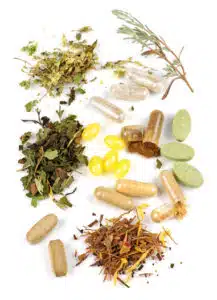So you’re thinking about trying to get pregnant. Congratulations! It is great that you and your partner have decided that you are emotionally ready to have a baby, but is your body ready?
To increase your chances of getting pregnant, and having a healthy pregnancy, it is important to make sure your body is ready for pregnancy.
So what exactly does that mean?
There are many studies out there that have shown that diet and lifestyle choices can have a big impact on fertility. That is not breaking news. But with all the information available, how can you tell what is the best advice.
In this article, we will share the 6 best tips to get your body ready for pregnancy. As always, please check with your healthcare provider before making any changes to your health plan.
Choose Healthful Foods
Eating well and developing healthy habits are important when you make the big decision to have a baby. It is also important to continue these healthy habits during your pregnancy.
In 2009 a team of Harvard researchers released a book called “The Fertility Diet,” which was based on their study that found women who followed this eating plan had a 66% lower risk of ovulatory infertility and a 27% reduced risk of infertility.
The fertility diet recommends the following:
Eat more monounsaturated fats and less trans fats

Trans fats are primarily made when liquid oils are put through a food processing method called partial hydrogenation to harden them. These partially hydrogenated trans fats can increase unhealthy low-density lipoprotein (LDL) cholesterol and lower healthy high-density lipoprotein (HDL) cholesterol.
Trans fats do occur naturally in small amounts in some foods, but most of the unhealthy trans fats in our diets are found in vegetable shortenings, some margarines, baked goods, pie crusts, frostings, and fried foods.
Eat less animal protein and more vegetable protein
An easy way to do this is to replace one serving of meat each day with a vegetarian source of protein such as beans, lentils, legumes, quinoa, nuts, seeds, or nut butters.
Eat more high-fiber, low-glycemic carbohydrate-rich foods
As explained in this verywell.com article, glycemic literally means “causing glucose (sugar) in the blood.” Low-glycemic foods tend to release glucose slowly and steadily into the blood stream which results in the body secreting less insulin.
Studies have shown improved insulin sensitivity and more regular menstrual cycles in with women PCOS who follow a low-glycemic diet compared with those who do not.
Choose foods such as dried beans, legumes, fresh fruits, 100% whole-grain breads, oatmeal, quinoa, and non-starchy vegetables such as green beans, broccoli, cauliflower, and zucchini.
Choose vegetarian sources of iron
Some easy sources that you can add to your daily diet are spinach, beans, legumes, prunes, and cashews.
Take a high-quality prenatal vitamin as soon as you start trying to get pregnant
A good prenatal should provide a complete range of nutrients including folate, choline, and vitamin D.
In general eating more vegetables and whole grains, selecting healthy monounsaturated fats, and getting enough calcium-rich foods will help prepare your body for pregnancy and support a healthy pregnancy.
Get Moving

For women with polycystic ovary syndrome (PCOS), daily exercise is very important as studies have shown that exercise and weight loss can help improve ovulation and increase chances for pregnancy.
Moderate daily exercise is best when trying to get pregnant. Too much or too little exercise can be reduce your chances of getting pregnant and having a healthy pregnancy.
Moderate exercise is defined as working hard enough to raise your heart rate and break into a sweat, but you are still able to talk. In general, 30-60 minutes of moderate exercise is recommended on most days of the week. Some good examples of moderate exercises are: walking two miles in 30 minutes, dancing for 30 minutes or walking stairs for 15 minutes.
Take a high-quality preconception prenatal vitamin
Start taking a good preconception prenatal vitamin as soon as you start trying to get pregnant. A preconception prenatal vitamin should provide a complete range of nutrients including folate, choline, iodine, iron, and vitamin D.
Folate and choline are important for the early development of the baby’s neural tube, which occurs during the first several weeks of pregnancy, often before you know you are pregnant. Maintaining a normal vitamin D level is also important for fertility and a healthy pregnancy.
There are also other preconception supplements you may want to consider depending on your age and health history.
Coenzyme Q10 (CoQ10)
CoQ10 can be helpful if you are over the age of 35. CoQ10 plays a crucial role in energy production in the body’s cells, including egg cells.
As you age, the body’s cells make less CoQ10 and are less efficient at producing energy. This can lead to a decrease in egg quality, poorer fertilization and early miscarriage.
Research indicates that taking a CoQ10 supplement can improve egg quality and potentially increase your chances of getting pregnant and having a healthy pregnancy. Another study in 2014 found that supplementing CoQ10 along with clomiphene citrate in the treatment of clomiphene-citrate-resistant PCOS patients improves ovulation and chances of becoming pregnant.
Vitamin D3

For women with PCOS some researchers conclude vitamin D has a regulatory role in several PCOS-associated symptoms, including ovulatory dysfunction, high levels of androgens, and insulin resistance.
For all these reasons, it is important to have your vitamin D level checked when you start trying to become pregnant. Typical preconception and prenatal vitamins provide only 400-1000 IU of vitamin D, which is not enough for most women. Higher doses (2,000 to 4,000 IU) of vitamin D3 per day are safe during pregnancy and are effective in achieving normal vitamin D levels.
Speak to your doctor about having your vitamin D level checked, and how much vitamin D you should take.
Inositol
Inositol is a nutrient naturally found in whole grains, beans, nuts, and fruits. Research has shown supplementing with inositol can help promote egg quality and improve the chances of becoming pregnant.
Inositol is particularly important for women with PCOS. Studies show that inositol decreases insulin levels and helps reduce insulin resistance. It also improves hormone levels and promotes regular menstrual cycles and ovulation.
There are many different forms of inositol. The two forms that have shown benefit are myo-inositol and D-chiro-inositol. Recent studies have shown that taking a combination of these two forms, in the body’s naturally occurring ratio of 40 to 1, is more beneficial than taking either form alone.
Drink less caffeine and alcohol

According to article by Drs. Pauli and Session, research has also shown that caffeine can lengthen the time it takes to get pregnant.
Don’t panic, you can still have a small cup of coffee or cappuccino daily. But, be sure to limit your caffeine intake to less than 200 mg a day for best chances at getting pregnant.
Alcohol
Although the studies on alcohol are mixed, a review published by Shady Grove Fertility concluded that women that drank alcohol reduced their chances of getting pregnant.
The bottom line is it is best to drink less alcohol while you are trying to get pregnant. If you are already pregnant, do not drink alcohol.
Stop Smoking
If you smoke, stop today. Smoking is not only harmful to your health, but it is also harmful to your fertility. Smoking cigarettes increases the time it takes to get pregnant. If you get pregnant, smoking increases the risk of miscarriage and birth defects.
Get enough sleep
According to Attain Fertility getting enough sleep is important for your health, your chances of getting pregnant, and for you to have a healthy pregnancy.
Sleep plays an important role in the regulation of hormones that are involved in ovulation and reproduction. Not getting enough sleep can disrupt your delicate hormonal balance, which can result in irregular menstruation and ovulation. This may result in you having difficulties in trying to get pregnant.
Try to get 7-9 hours of sleep per night on most nights of the week.
In summary, the best tips to help you get your body ready for pregnancy are follow a healthful diet, get moving every day, consult with your doctor and take the best supplements for you, and don’t forget to get plenty of sleep!
Cynthia Clark, MS, RD, is a Registered Dietitian with a Master of Science degree in nutrition education from Rosalind Franklin University of Medicine and Science, and a Bachelor’s degree in dietetics from Arizona State University. She holds certifications in weight management counseling, and was awarded the Emerging Leaders award by her national professional association, the Academy of Nutrition and Dietetics. Currently she holds the position of Senior Dietitian in Research and Education at Theralogix, LLC, producers of Ovasitol, a 100% pure inositol supplement scientifically formulated to promote menstrual regularity and normal ovarian function.*
- sustainable pcos weight loss strategies
- Over 5500 women have done it and seen results
- [bonus] Done for you pcos meal plans
- [bonus] intermittent fasting for pcos course
- [BONUS] personalised nutrition plan
JOIN OVER 5,500 OTHERS







